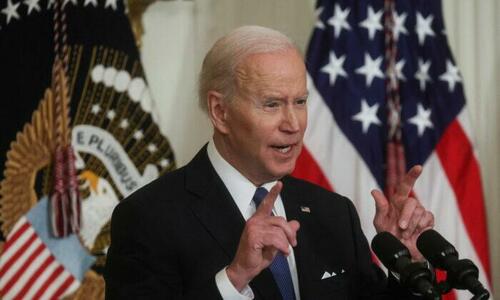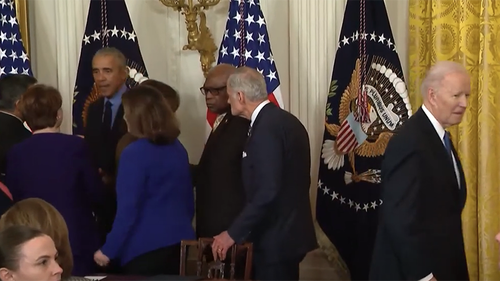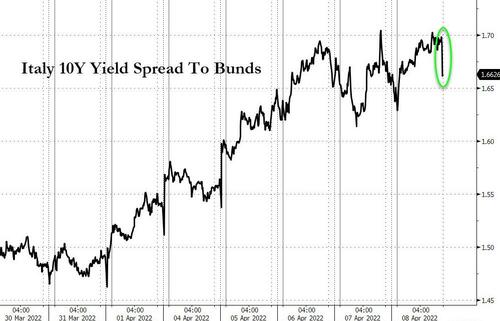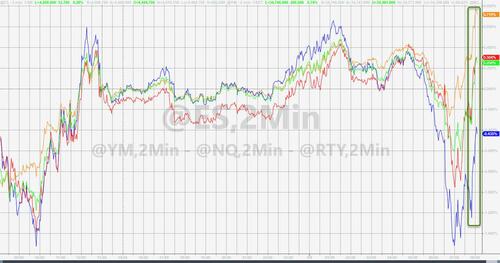Rick Hasen’s book identifies a tremendously serious problem; and it offers only modest solutions. And rightly so, I think: As the book correctly points out, more aggressive restrictions (such as bans on supposedly “misleading” advocacy) will likely be cures that are worse than the disease, however serious the disease might be.
I therefore have little quarrel with many of Rick’s suggestions. But I do want to talk briefly about the problem of foreign speech that may influence election campaigns, which Rick suggests should be even more restricted than it is now (see pp. 102-09).
Protecting American self-government from undue foreign influence is of course quite appealing, especially for people (like me) who have a mindset that’s more nationalist than universalist. I don’t view myself as a citizen of the world; I’m a citizen of a particular nation. If I’m stranded in Elbonia, I’m not going to call the UN for help; I’ll call the American Embassy. It is my nation, not the world, that I expect to defend me against peril. In turn, I’d like to see my fellow citizens make political decisions without excessive interference by foreign countries, even friendly ones but especially adversarial ones (such as Russia). “God gave all men all Earth to love / But, since our hearts are small / Ordained for each one spot should prove / Beloved above all.” Our spot, for us to govern; and I’m sure many citizens of other countries think the same of theirs.
At the same time, much important information relevant to American political debates comes from foreign citizens. Some are people living in the U.S. on temporary work or student visas. Many are in foreign countries; they could be ordinary citizens, political activists, scholars, or politicians. They may be able to convey important facts and ideas about the effects of American foreign policy; or about American actions bearing on world problems (such as climate change or telecommunications technology or artificial intelligence or food production); or about foreign problems that might call for American help.
They might offer some information about the foreign activities of American politicians or business leaders. They might be foreign religious figures who want to exhort their American followers to act consistently with their shared religions. They might be journalists for foreign newspapers who are writing about American politics for a world audience, including an American audience. And they might even be foreign government employees (such as academics, much as Rick and I are employees of an American government) or others who are actually or allegedly linked in some way to a foreign government.
The Court has of course recognized the right of American listeners to receive information from foreign sources; the very first case striking down an Act of Congress on First Amendment grounds, Lamont v. Postmaster General (1965), involved a law that barred the delivery of “communist propaganda” from foreign sources (which were understood as generally linked to foreign governments) unless the recipient affirmatively authorized its delivery. Such a law, the Court held, “is unconstitutional because it … [is] a limitation on the unfettered exercise of the addressee’s First Amendment rights.”
Of course, Rick is right (p. 106) that this isn’t the end of the story; perhaps the analysis should be different for laws focused on election-related speech. And of course in Bluman v. FEC (2012), the Court summarily affirmed, without opinion, Judge Kavanaugh’s decision for a three-judge court upholding a ban on foreign citizens (other than permanent residents) “contribut[ing] to national political parties and outside political groups” or “expressly advocating for and against the election of candidates in U.S. elections.” (One might also note Meese v. Keene (1987), which upheld a requirement that expressive materials funded by foreign governments be labeled “political propaganda.”)
But once one gets beyond the narrow zone of contributions or express advocacy with regard to candidates, to “tightening the foreign campaign spending ban” (p. 102), the matter becomes much more complicated, I think. (The Bluman court expressly noted that it did not decide on any broader restrictions, such as on “issue advocacy and speaking out on issues of public policy.”)
And of course if one really wants to deal with foreign attempts to influence elections, one would indeed have go to much beyond “expressly advocating for and against the election of candidates.” Sharp criticisms of a President or Senator who is running for reelection, after all, may well affect the election, even if they are “susceptible of [a] reasonable interpretation other than as an appeal to vote for or against a specific candidate.” Indeed, extensive commentary on issues that are central to an election can affect the election as well, even if it doesn’t mention a particular person, for instance because it “foment[s] American political unrest” (p. 49). And that’s true even when the coverage doesn’t involve advertising, but rather the free distribution of speech that will often have cost money (if only in the form of writers’ salaries) to write or design or videorecord.
No wonder that Rick is at least suggesting (though perhaps not fully endorsing) Congress “proceed[ing] even more broadly and outlaw[ing] all the social media and Internet activity Russians engaged in to influence the 2016 and 2020 elections” (p. 104)—which would presumably extend equally to speech by Swedes or Britons or Israelis or Palestinians that may affect American elections. And while Rick warns that the Supreme Court “could well strike down a law barring foreign entities from running paid ads that stir up unrest on contentious issues such as racial justice, immigration, or gay rights” (p. 105), it seems that he views this as a defect in the Court’s jurisprudence, perhaps one that a more enlightened (because less “libertarian”) Court would correct.
Likewise, Rick has taken the view that it would be a crime for an American campaign to receive “opposition research” on a candidate from a foreign national, on the theory that it is a forbidden contribution of “anything of value” to a campaign. (Again, notice how this doesn’t involve independent expenditures in the sense of buying advertisements for cash.)
So say that, in Summer 2024, when Donald Trump is running again for President, a top Kamala Harris staffer gets a message from a Slovene student at the Wharton School: “I’ve done extensive research on President Trump’s involvement in his Miss Universe organization, and found that Miss Slovenia says that Donald Trump had sexually harassed her. Would you like to get this story?” The staffer says, “I’d love to,” and indeed gets the information, which he then uses in the campaign (and which many American voters presumably find useful).
Under Rick’s theory, it would be a crime for Harris to receive this, on the theory that this is valuable “opposition research.” (It might be possible under this theory that it wouldn’t be a crime if Harris paid for it, since then it wouldn’t be a donation to the campaign, but that would be a very odd rule: We usually frown on paying for incriminating evidence, rather than thinking that paying for such evidence is what makes otherwise criminal conduct legal, plus what would the fair market value of such one-off incriminating evidence even be?) Moreover, if that’s an illegal contribution to a campaign, then presumably the Slovene’s publishing that information online might be treatable as an independent expenditure by a foreign citizen, and thus also constitutionally unprotected.
Rick doesn’t elaborate in detail what he thinks the proper constitutional framework should be for such speech by foreign citizens or organizations (or governments) on matters that might bear, directly or indirectly, on American election campaigns. But I think it would be helpful for us to think about that question, if “the foreign campaign spending ban” is indeed to be tightened, and if a changed Supreme Court were to face a ban on foreign “issue advocacy and speaking out on issues of [American] public policy.” And, again, that’s important not just to define the rights of foreign citizens (including ones who live in America), but also to define the rights of Americans to hear a broad range of views, from all sources, about American political matters.
Now one possible answer that Rick seems to offer (p. 107) is that such speech should be protected if it’s published by foreign “news media” but not by other foreign speakers. (“[D]ifficult as any dispute over an expanded general foreign campaign spending ban might be, any law specifically aimed at shutting down fake news sites run by foreign entities such as Russia’s Peace Data site (described in the last chapter) promises to stir up a hornet’s nest among the Court’s conservatives because of the definition of who counts as the news media.”) As I’ve noted, the Supreme Court has generally held that the Free Press Clause protects “press” in the sense of a technology (the printing press and its technological heirs, which is to say mass media communications) and not “press” in the sense of an industry. And while of course that doctrine might change, any such change would require difficult line-drawing about who is entitled to “free press” rights and who isn’t.
Rick seems to endorse (p. 109) Sonja West’s proposed framework, under which courts would identify the “press” by looking to “four factors”: “(1) recognition by others as the press; (2) holding oneself out as the press; (3) training, education, or experience in journalism; and (4) regularity of publication and established audience.” Presumably an editorial or an article in the Times of London sharply condemning an American political leader who is seeking reelection would thus be “press” and presumably not subject to “shutting down,” whether on “fake news” grounds or campaign spending grounds; but some other online material wouldn’t be “press.”
Yet this seems like a poor basis for a definition that has constitutional significance. Element 1 would involve delegating decisions about who has constitutional rights to unspecified “others,” who will often be self-interested or ideologically motivated. Element 2 would of course just lead advocacy groups to self-label as “news” or “media” or something along those lines. Element 3, if taken at face value, would strip protection from material in opinion magazines, such as The New Republic, National Review, and the like, since much of that speech comes from academics, think tank researchers, policy advocates, and others, who aren’t trained as journalists (and who sometimes write only occasionally, thus lacking much “experience in journalism”). Element 4 would favor established media entities (however biased, deceptive, or foreign-government-influenced) over new upstarts.
Finally, Americans of course routinely comment on foreign politics, including on foreign elections. The U.S. government has long funded speech aimed at influencing citizens of foreign countries. American nongovernmental organizations often engage in such speech as well, on democracy, gay and transgender rights, religious freedom, civil liberties, and much more.
American newspapers, including ones with substantial overseas circulation, comment on foreign countries’ policies, politics, and politicians. And of course American-based search engine companies and social media companies impose their content policies on political speech (as well as other speech) in foreign countries. Perhaps these don’t involve much spending on express advocacy in support of or opposing a particular candidate (I’m not sure), but again it appears that Rick’s suggestion would go beyond that narrow zone.
Now perhaps we should take the view that America and American individuals and organizations should get away with whatever we can along these lines in foreign countries, and at the same time restrict whatever speech we can from foreign countries that would try to influence American political debates. “The strong do what they can and the weak suffer what they must,” like it or not, might be eternal truth; and even if we’ve tried to restrain that principle when it comes to military force, perhaps it makes sense for speech about politics. At the same time, it would be helpful to know if there is some generalizable principle available here, which we would be able to live with when it comes to others restricting Americans’ rights to speak about foreign elections (including about the issues critical to foreign elections) as well to our restricting foreigners’ rights.
In any event, these are just some thoughts on what might be worth considering when it comes to “tightening” existing constraints on foreigners’ speech about American elections.





